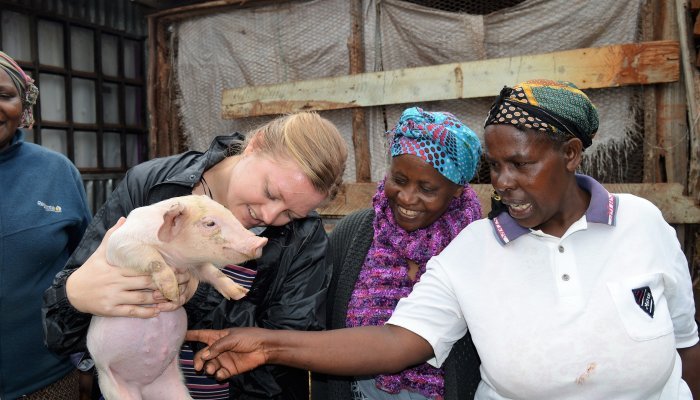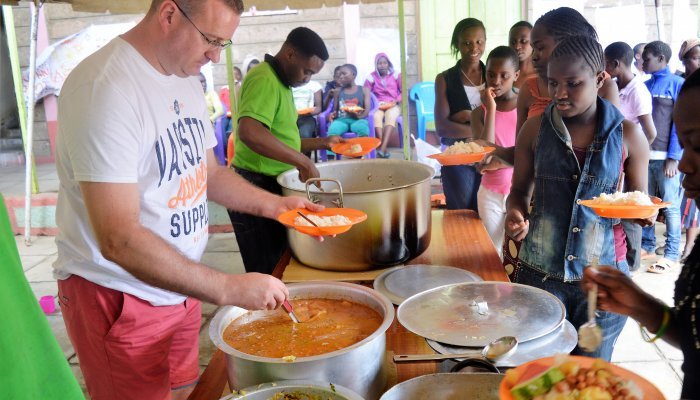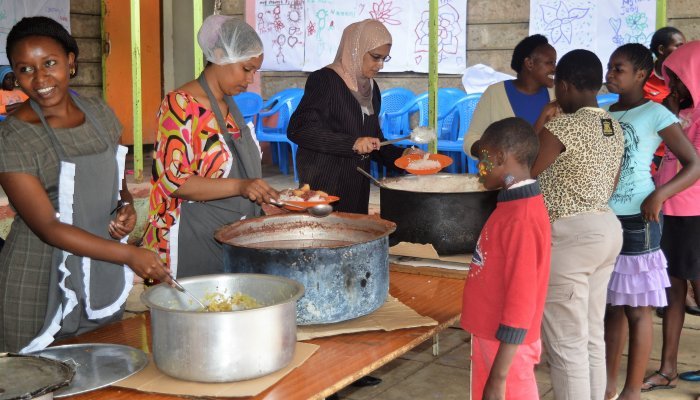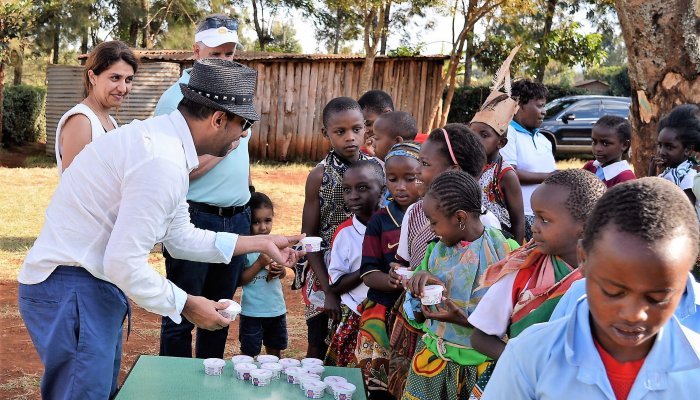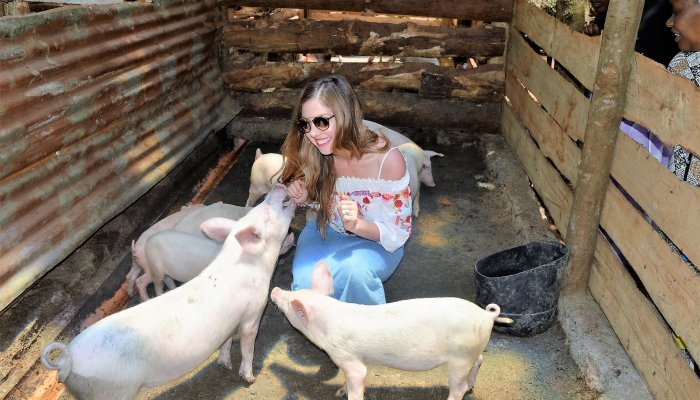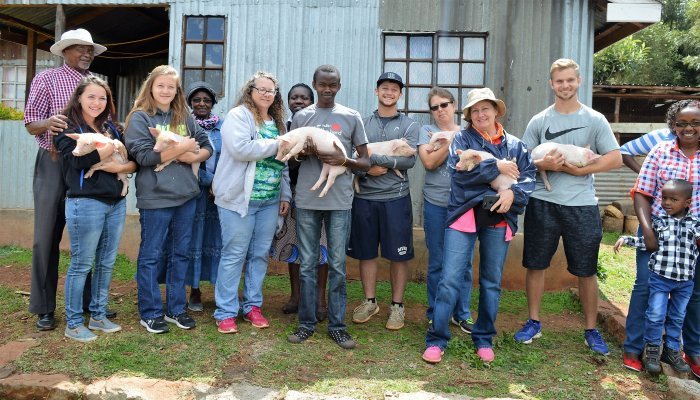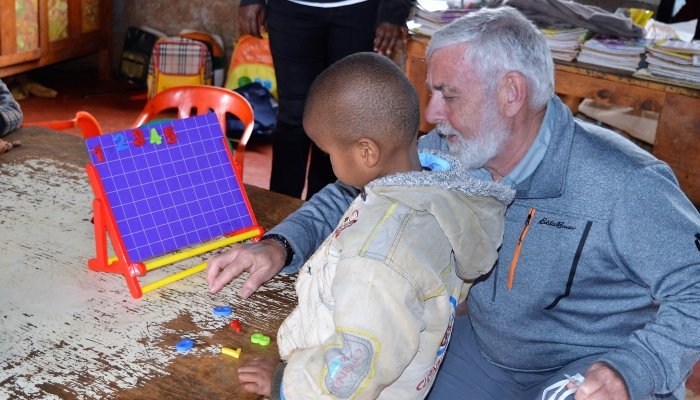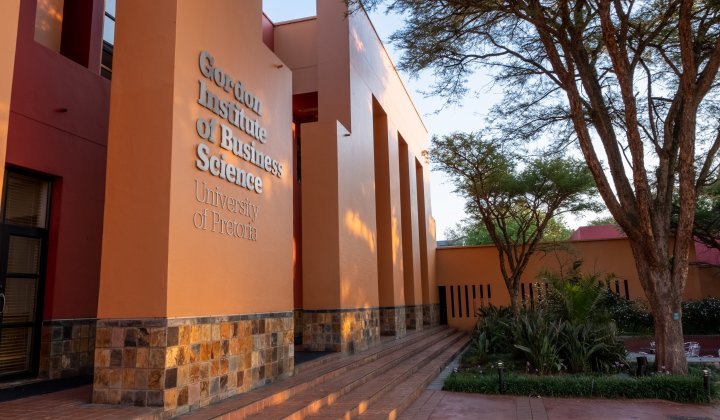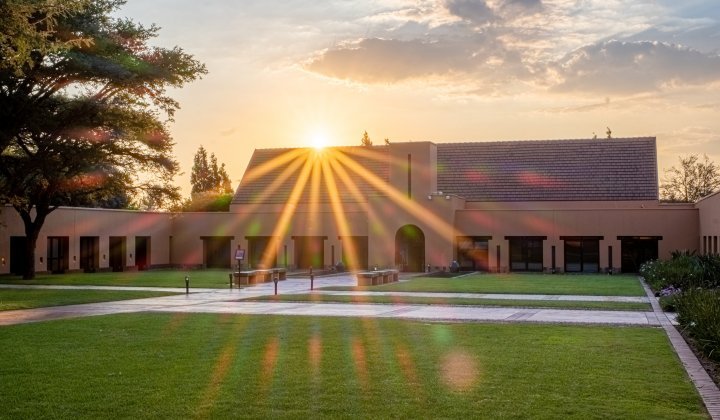For most of its history, international aid work has been considered the domain of large, multifaceted, and government-funded organisations. For Colin Murray, these highly politicised organisations are a club and, whilst they do good work, they actively discourage those outside the club to get involved. And yet when travelling in Africa, he found that in so many places, these aid organisations were absent.
“I wondered how it was, that after 70 or more years of the United Nations and billions being spent, people still lived in misery,” he says. “How could it be that malnutrition and disease were rife in major cities without a response? Somehow these major aid organisations were driving past the people that they were supposed to help.”
Murray also noticed that these organisations spewed out information that said sustainability was the key; that unless a programme that alleviates poverty was sustainable, one shouldn’t even try to help. While he agreed that this stance was all well and good, it still didn’t answer the question of how to tell a hungry child that they didn’t qualify for help because nutrition programmes were often not considered sustainable.
“The final straw came when, after being invited to a forum on Africa, the major decision was to develop a model of how to alleviate poverty, as if this was a new concept and as if we didn’t already know the drivers of poverty and what was needed,” he says. “I walked out of the forum and my fellow director and I decided to do something. Not tomorrow, but now.”
They didn’t want to be beholden to any government so they decided to never accept or apply for state funding. Instead, the power of people who wanted to get involved would provide the funds required. But they also knew that they wouldn’t be able to attract others if they didn’t demonstrate that they were backing it themselves with their own funds.
“We believed in the goodwill of people; that given a chance people would get involved to help others less fortunate,” he says. “And we knew that governments couldn’t solve every problem, nor should they be expected to do so. But we knew that harnessing people in collective action was the way to go.”
Solutions developed by Africans
The result was One Horizon, an organisation that now employs over 70 people directly. As Executive Director, a hands-on shared role, Murray’s job is to identify and operationalise the practical programmes and projects to help people on their journey out of poverty. This involves bringing local people together to facilitate the process.
“We’re a grassroots organisation working in local communities with everyday people,” he says. “But in doing this we never impose our own programmes on people. The solutions to the problems that keep people in poverty where we operate are developed by Africans themselves. We, the directors, only apply our business skills to foster the relevant training and development in relation to the knowledge, skills and funding required.”
One Horizon began in Kenya but expects to be operational in Tanzania in 2018 and further expand through Botswana in 2019. In South Africa, it funds local initiatives on approach from individual organisations consistent with its objectives. This was an evolution from taking people to centres and hosting them. Its reputation has also meant that it’s often approached by organisations that want to contribute back to society, meaning it can act as the facilitator of the programmes and funding.
“One Horizon realigned its key messaging in 2017 in a way the travel industry could relate to,” Murray says in reference to their message ‘holidays that change lives’. “And through the media of video storytelling, we related the stories of our community and travellers, which struck a chord with everybody. One Horizon had, in the end, to educate travel agents about this trend. Travellers themselves were leading the trend, but travel agencies were slow to understand. It was the demand from travellers which led the push.”
Indeed, One Horizon has now been embraced by many travel agents who hadn’t been able to get their heads around what it did. In the past, they didn’t understand what responsible tourism was in relation to ‘people’ issues (which many of them still don’t grasp) and often had simplistic notions of what it entailed. They also often interpreted One Horizon as a charity (which it isn’t) and didn’t realise how the wider community of travellers could get involved in changing lives.
“When One Horizon attended a trade show in London a couple of years ago and requested use of the responsible tourism logo, we were perplexed that our request was denied,” Murray recalls. “That just goes to show where the current focus is and that responsible tourism as it applies to people and helping them out of poverty still isn’t understood.”
A greater societal trend
There is a growing awareness in society for environmental issues (as anyone who has had the audacity to ask for a single-use straw recently knows) and the travel industry has embraced the greater societal trend. The trend in looking at hotel facilities and their impact on ecosystems is a positive one, especially in pristine environments. But the human element of employment in these resorts hardly gets mentioned.
“For example, most four-star hotels in Nairobi charge visitors between $200 and $250 a night,” Murray says. “Yet the salaries of hotel staff – kitchen, cleaning and front desk staff, which are by far the biggest employers for locals – average $100 to $180 a month and many staff walk to work because they cannot afford transport. The positive trends in tourism are paying lip service to the human element and there could be a good case for exploitation of local workers.”
There’s also exploitation of local communities, as seen in what Murray describes as the appalling growth of slum tours, which many agents still support. Often these experiences provide nothing more than voyeurism and do nothing to help local communities. The only winners are individuals who lead the tours or, at worst, the tour companies that run them. Little is returned to the slum community and it’s difficult to see what travellers get out of it.
“The challenge of this trend is that providers that are tokenistic in their efforts to impact communities are quickly identified by travellers,” he says. “In One Horizon’s case, the benefits to our community programme are transparent, validated and there for all to see. Our pig farming operations for communities and the impact on communities are on display every day. And individual travellers are intimately linked with delivering the benefits.”
Murray sees a great overall opportunity to harness what for many is a first time experience and turn it into a longer-term association. In that regard, One Horizon is experiencing repeat business that, on its forward bookings, represents about a 60% growth rate. Leveraging and sustaining that will require a greater degree of engagement with travellers after their initial tour.
“Travel agents often struggle with what we think is an easy concept to understand,” he says. “But One Horizon has some amazing and supportive travel agents that have reaped the benefit of the association with us, and our communities with them. The opportunity for One Horizon and its communities is that there is growing pressure on travel agents to provide the kind of experiences that groups like One Horizon offer.”
One Horizon achievements
Key figures
· In Kenya, the average annual income (per person) is $1 300.
· Unemployment levels are estimated at over 45%.
· 50% of the population live at or below the poverty line.
· 25% of all children under five years are chronically malnourished and underweight.
· Infant mortality is 38/1 000 births compared to 5 in western societies.
· There are 2.4 million orphans in Kenya.
· The mean age in Kenya is 19 whilst 47% of the population are aged 14 years or less.
Key achievements
· Nutrition programmes for children at 23 centres across Nairobi
· Vocational, lifestyle and small business retraining programmes for women
· Small business enterprises (pig and chicken programmes) for grandmas
· Housing and resettlement programmes for displaced women
· Youth outreach programmes
Children
· Over 2 000 children receive breakfast and lunch each day.
· Over 2 000 children receive medical support.
Communities
· 20 biogas systems have been installed in small-scale pig farms, eliminating community needs to cut down trees for fuel and/ or purchase coal for cooking.
· Over 70 ablution blocks have been established in communities.
· Over 95 water wells and fresh water supplies have been supplied to communities.
· Health and hygiene programmes have reduced hospital admissions by 50%.
· Supply of electricity to community resettlement programmes.
Women
· Over 580 women have received small business training and been established in their own businesses.
· Over 120 single-parent families have been kept together by One Horizon’s resettlement programme.
Grandmothers
· Over 100 small businesses (chicken and pig farms) have been established for grandmas and these have resulted In incomes of between $3 000 to $6 000 for participating grandmas against the Kenyan average of $13 000 per year.
· 10 local community field kitchens for grandmas have been established to reduce malnutrition levels


